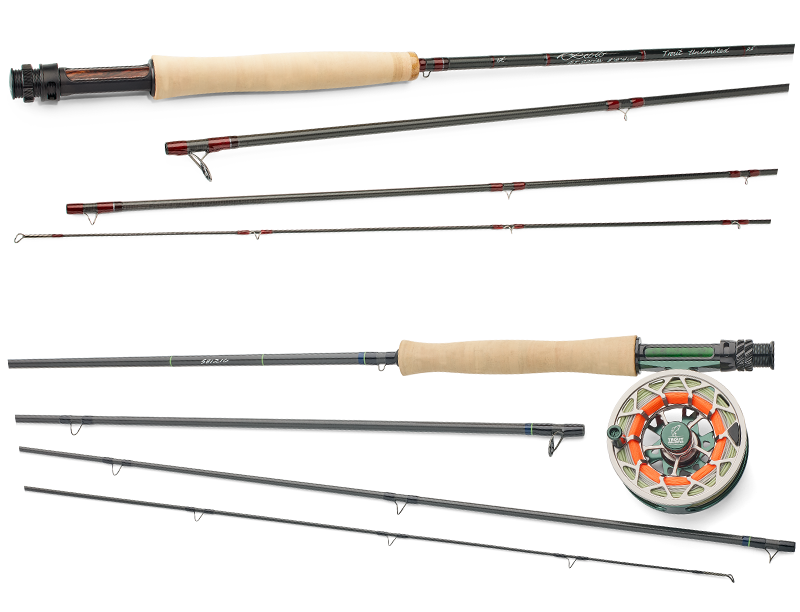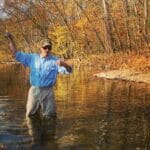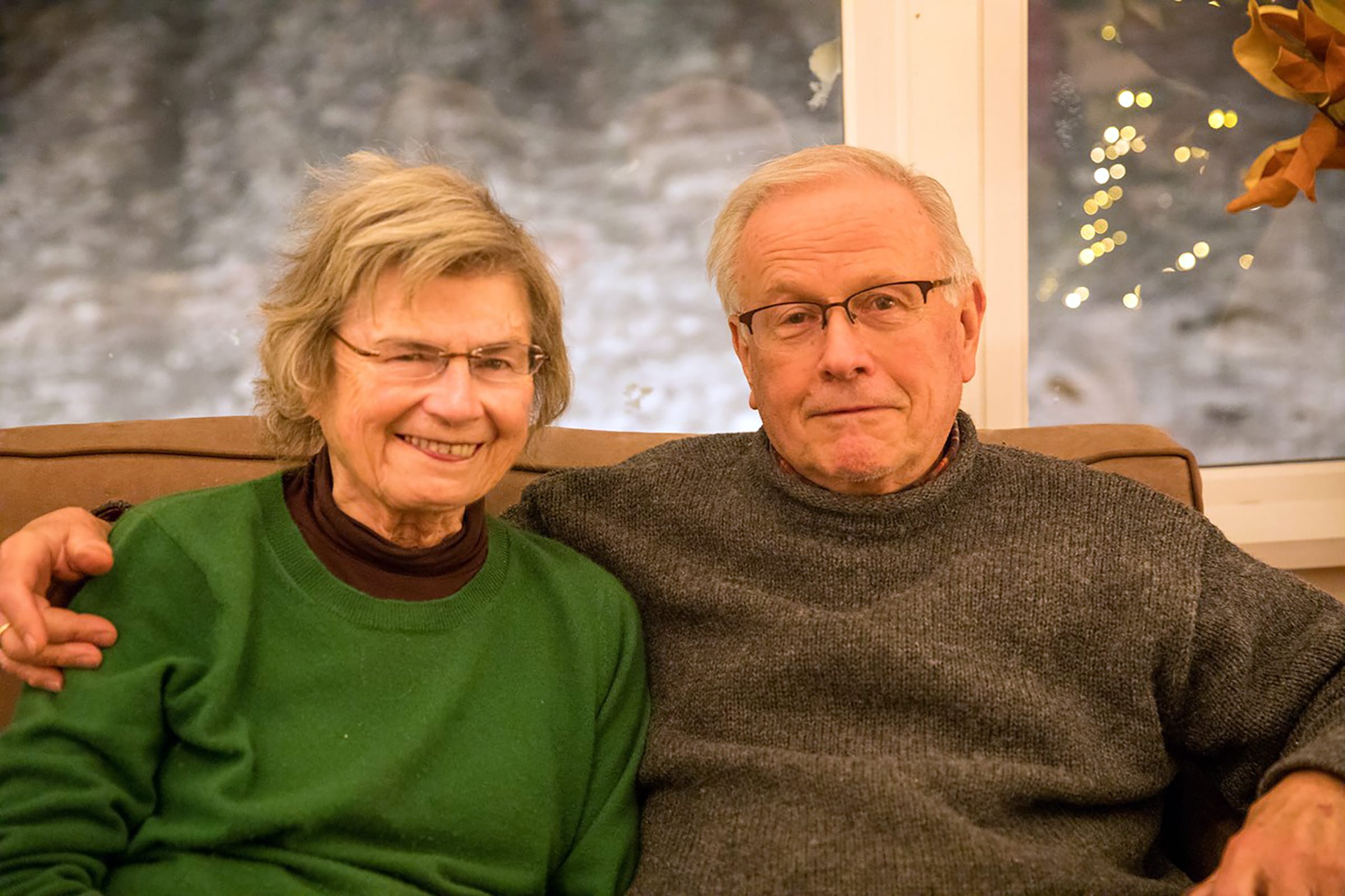Even though they never fished, I always think of Mom and Dad when I hear the line, “In our family there was no clear line between religion and fly fishing.”
Norman Maclean wrote that on the opening page of what’s arguably the most influential novella in the history of fly fishing. Describing his father and family for context in A River Runs Through It, Maclean wrote that his dad…
…was a Presbyterian minister and a fly fisherman who tied his own flies and taught others. He told us about Christ’s disciples being fishermen, and we were left to assume, as my brother and I did, that all first-class fishermen on the Sea of Galilee were fly fishermen and that John, the favorite, was a dry-fly fisherman.
My Mom passed away last month. She was tough, funny, incredibly generous and kind. What made her truly remarkable was her ability to exude all these virtues at once.
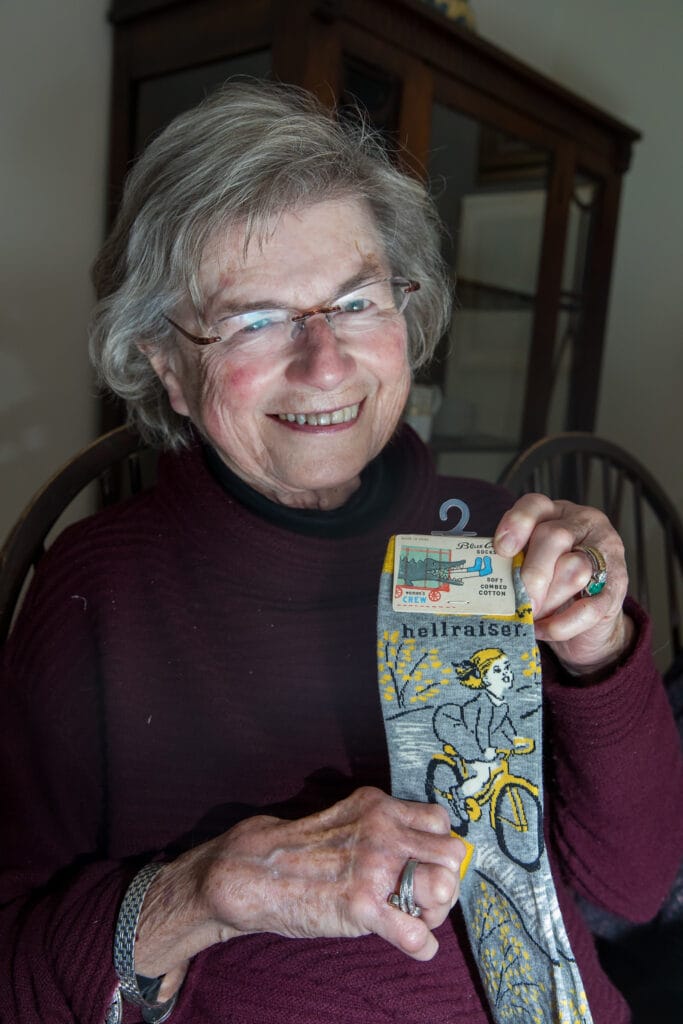
She was a devout Catholic. She attended 7 a.m. Mass every morning until she no longer could. When I asked her if she missed going, she said, “I think I have enough in the bank.”
After she passed, I started praying the Rosary again—something Mom did every night. Curiously, I find similarities between that practice—which involves holding a chain of small beads with a cross at the end, and repeating prayers—and fly fishing, and conservation.
Repetition
Praying the Rosary every night is no mean feat—50 “Hail Mary’s” (at a minimum, 150 in the long form), five “Our Fathers,” among other prayers and devotions.
It is not as though Mom had a lot of idle time on her hands, either. She drove my brothers and me to thousands of practices, hundreds of games and bandaged too many cuts and scrapes to count.
When the youngest of us turned 18, she started an estate sale business that kept her on her feet for 10-12 hours per day. She ran “Mary Wood Estate and House Sales” for more than 30 years. This was after her doctor told her not to have any more children for fear that she would not walk again because of the debilitating arthritis that she was diagnosed with at 26… after my brother, John, and I were born. Nick and Emmett came along over the next five years.
Praying the Rosary reminds me of one of my first trips to Alaska. My buddy, Mick, headed upstream. I stood casting to the same rock in the middle of the river. Cast, extend and reach my arm upstream, and allow the cast to drift. Lift the line, false cast, adjust the direction of the line upstream, cast again, and extend my arm upstream.
I made that same cast at least 30 times to that rock before I was happy with it. Then, I did another 30. The line stopped. As I lifted to cast again or retrieve the snag, the line streaked—and I mean streaked, downstream.
I will save the details of that story for another day, but it involved a very large Dolly Varden, me getting between a mama moose and her calf (never a good idea), and my waders filling with water. I lost that fish at my feet. To this day it remains a favorite fishing story.
The act of casting—a combination of muscle memory, practice and experience defines faith for me, as Mom’s prayer did for her.
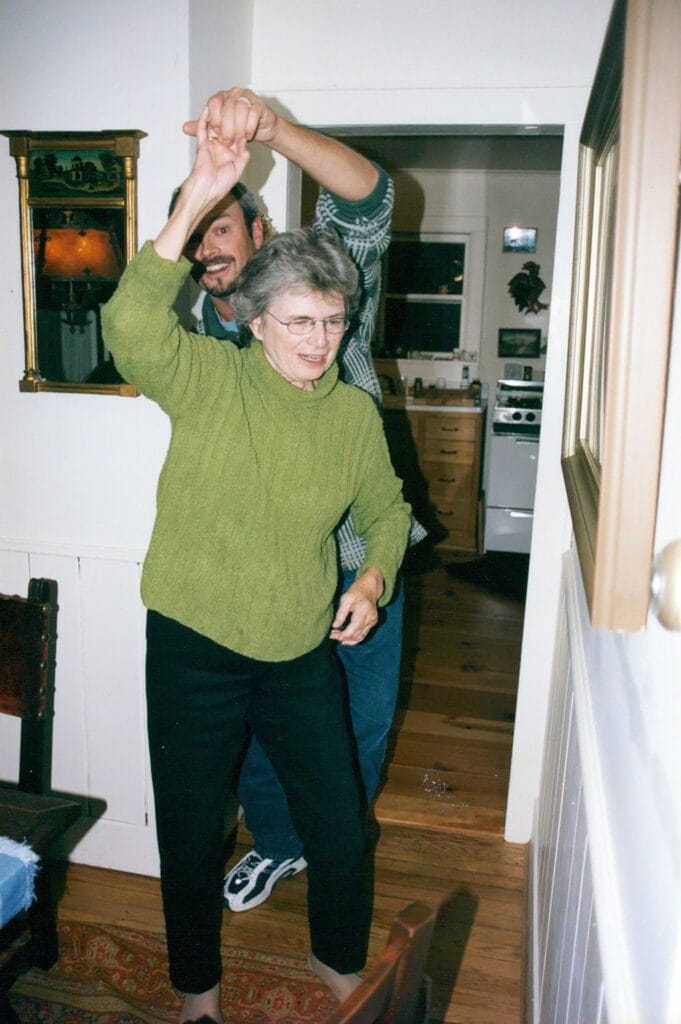
Slow down
Like fly fishing, praying the Rosary is a practice in slowing down.
Mom would sit at her bedside for 60 to 90 minutes at night. Sometimes, having gone to bed myself, I would notice her light still on down the hall. I’d reluctantly put down my book, walk down the hall, and ask, “what are you doing, Mom?” Sitting on the edge of her bed, she would look up with her wonderful watery eyes, and say, “I am praying, Chris.”
Praying the Rosary requires concentration. If not, the Hail Mary’s become meaningless droning. When I fish with my friend, Pancho, from the Carrilefu River Lodge in the Patagonia section of Argentina, he will often say, “Chris, you must slow down your cast. Slow down. You have way too much power in your cast.” Because I learned to fly fish on stripers and bluefish, I double haul in even the smallest brook trout streams.
When I listen to Pancho and slow down, my cast magically unfolds and falls on the river as though the person behind it knew what he was doing. As Mom demonstrated, like a good cast, praying a Rosary with purpose forces you to understand what you are doing, and why you are doing it.
Time spent
Praying the Rosary is like many things in life. The more you do it, the more meaningful it becomes.
In the same way, the more you cast, the better you cast. The more you fish, the more fish you catch. On the last day of every three- or four-day trip, I marvel at how much more accurate my casting becomes. “Man, the fish would not have had a chance if I was this good a few days ago!”
I have always been driven. So driven that after I moved away from home—other than holidays, I rarely made it a priority to visit Mom and Dad.
Emmett would take them and his family to Monhegan Island in Maine every year. Mom and Dad would travel to see Nick and his family in Watch Hill, Rhode Island. John would have them come and stay with his family and then sell artwork from Dad’s gallery to his friends in Virginia.
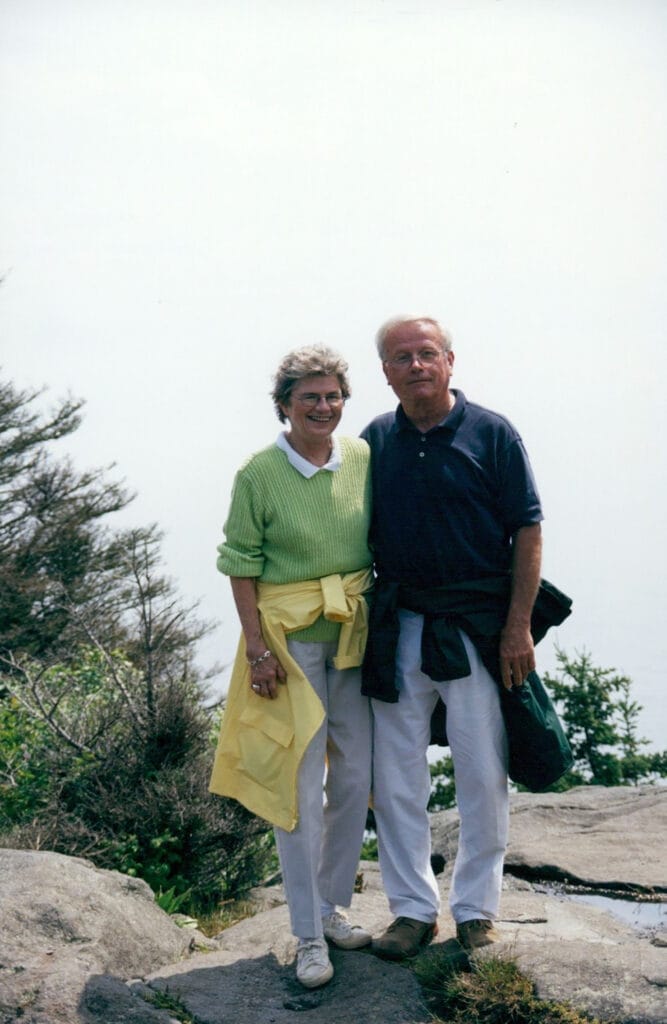
Me? I was too busy trying to protect roadless areas and old growth at the Forest Service. Then, I was busy trying to figure out how to grow and run Trout Unlimited. I had my own family and kids to coach and raise. It was not until six years ago when Dad closed his art gallery in the Berkshires, and I saw the early signs of dementia that I paid closer attention and made it a priority to spend at least four or five days every month with them.
What a gift. Seeing Dad fail in his last years was hard; being absent would have been devastating. Over the last three years, I learned from Mom the meaning of equanimity and grace. She remains to this day the only person I ever met who responded to physical pain from her arthritis with laughter, saying, “Oh, I am fine Chris. It is my bones that are the problem!”
Over the last six years, I was their cook, gardener, roofer, plumber, and handyman. Upon arriving, I would walk into the kitchen or living room and ask for “The List (of repairs/chores).” Mom would always respond the same way: “Don’t worry about that. You, Chris, are the best medicine.”
It was not until they were gone that I realized my most important job was simply to be their son.
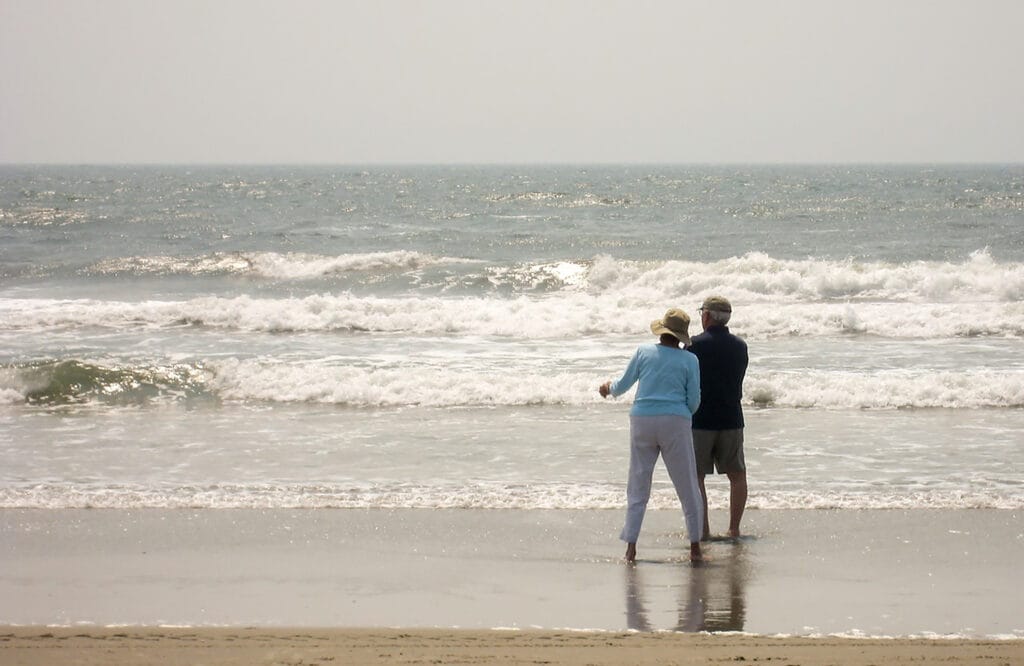
Leave it better than you found it
The “Glory Be” prayer is also a part of the Rosary. Its conclusory lines include: “…is now and ever shall be, world without end.” The “Glory Be” suggests durability.
Mom lived the words of the book of James: “Faith by itself, if it is not accompanied by action, is dead.” She donated to so many non-profits that we lost count. John asked me a few years ago, “can you get her to stop?” She loved her estate sale business because she saw it as helping people—those that needed to sell; those that needed to buy; and the non-profits who benefited from the donations of what was left. She was a continuous reminder of the Jesuit adage to “be a person for others.”
For many of us, learning to fish starts with bait, then spinning rods, then fly-fishing. I remember the precise moment I learned what makes that progression possible. It was in Alaska where I learned about salmon and steelhead, these wonders of God’s creation that reside in the ocean for few years before returning to the stream they were born to spawn a single time before they die, and their decaying bodies provide the nutrients that allow the cycle to continue.
That species that motivated me so many years ago today cling to the slimmest thread from extinction in the Snake River Basin. My friends, Warren Winders and Brian O’Connor, told me about the death of a salter brook trout stream in Massachusetts a few years ago because of carelessness and indifference.
The obverse is also true. How motivated must the residents of Sun Valley be to find their presumed hatchery rainbows in the Wood River are in fact native Redband trout? How thrilling to the people of Arizona that they were able to recover Apache trout from the clutch of extinction?
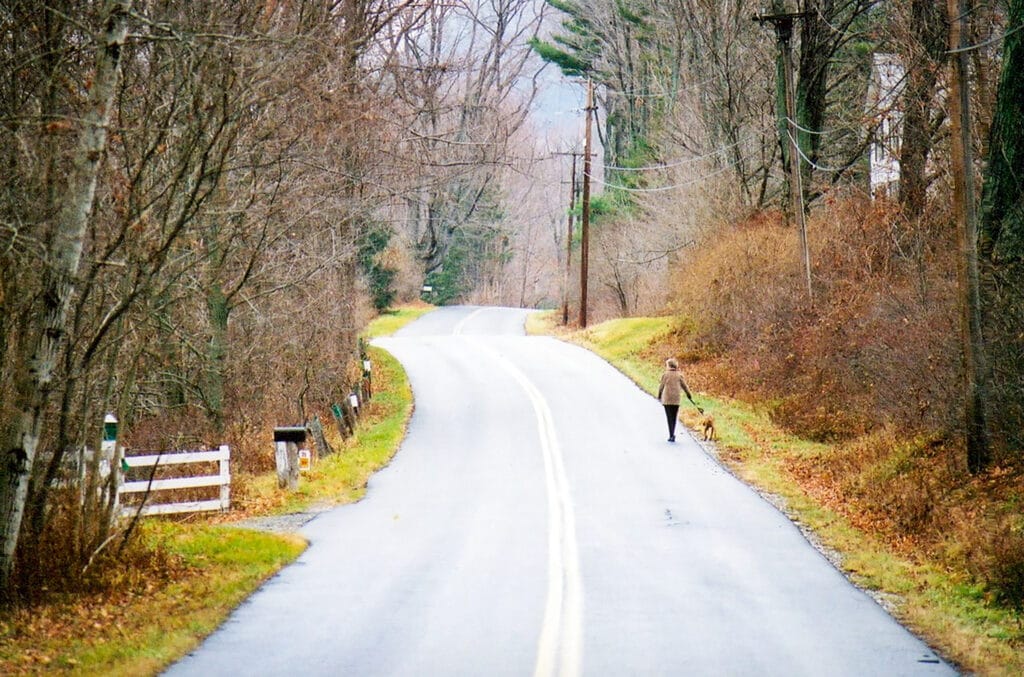
The one certainty in life is that it will end. That need not be the fate, however, of the trout and salmon and rivers and streams that give us such joy. Mom’s faith served a purpose. So, too, do our collective efforts to care for and recover our lands and waters.
Everyone who has lost a parent, family member or friend understands the fragility of life. So, too, it is with trout and salmon streams. Whether you are religious or not, “…is now and ever shall be, world without end,” seems like a pretty good goal to work toward for our kids and grandkids.
Amen.

